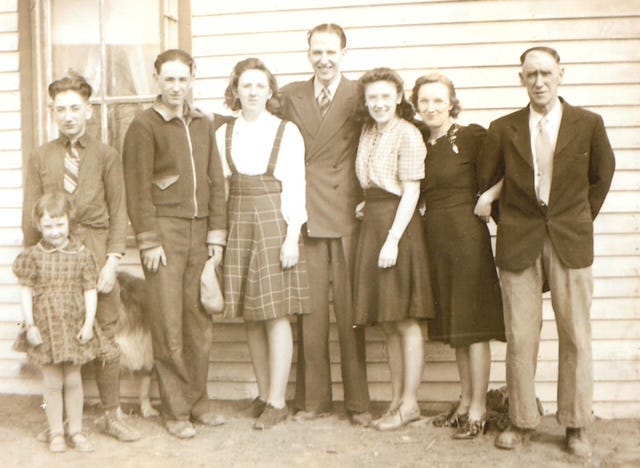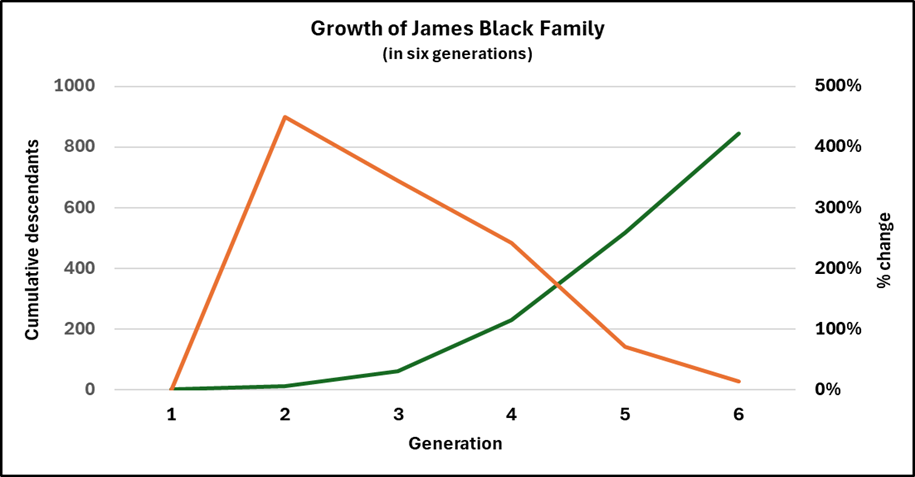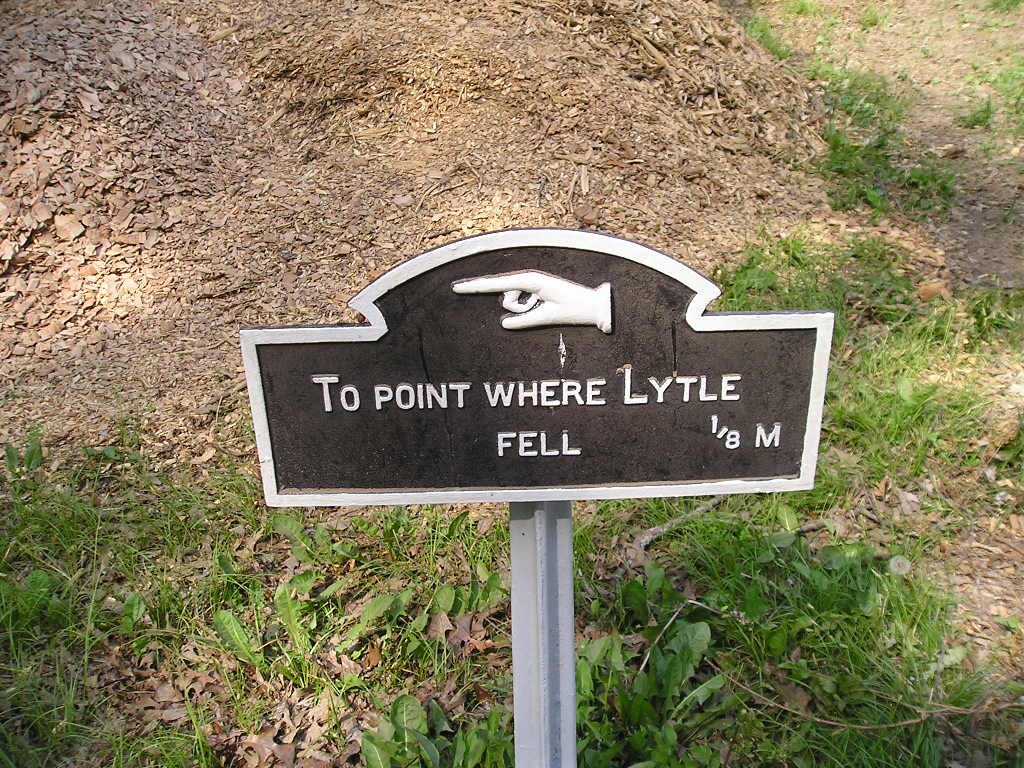Connections
Reflections on a reunion
According to StatsCan, only 50% of Canadians rarely feel lonely. Ten percent always feel lonely and 40% often or sometimes feel lonely. As an introvert who too frequently likes to be alone, the concept of loneliness is foreign and strange. So what is loneliness?
Taken from Forbes Health, the American Psychological Association (APA) defines loneliness as the “affective and cognitive discomfort or uneasiness from being or perceiving oneself to be alone or otherwise solitary.”
It is like they took the words right out of my mouth! My interpretation is that loneliness is the discomforting emotional reaction to the feeling of being alone. Note that it is a feeling and not a physical reality. I suppose many remember the feeling of being alone even while sitting next to the person with whom you just had an argument. So, it is an emotional rather than a physical distancing from others.
There are, of course, many reasons for feelings of loneliness. I can almost always attribute my rare occasions of feeling lonely to having behaved like a jerk which implies that there is a self-directedness to loneliness that is too often ignored. What cannot be ignored are the long-term consequences of loneliness – again according to Forbes Health:
Cognitive decline
Depression
Heart disease
High blood pressure (hypertension)
Obesity
Weakened immune system
Alzheimer’s disease
No doubt there is a pill to cure loneliness. I once took a long drive with a relative who was battling a long-term illness that steadily wore down her body, removing normal capacities at an accelerating rate. As the progress of the disease and its awful consequences were discussed, I remarked that she was surprisingly upbeat and positive about what was happening. In response I was given a beatific smile and one word,
“Prozac!”
So, there is a pill. Of course there is a pill.
This past year, I was the designated planner for a large family reunion which seems intimidating, but it wasn’t. What the experience gave me was the chance to contemplate the meaning of family. My immediate family often responds to my indifference to what others might think by saying,
“Yes, but you are a Lytle.”
Planning a reunion gave me the opportunity to consider what “Yes, but you are a Lytle” might mean.
Apart from finding a caterer and hall and other logistical requirements, I was motivated to dig out the family tree and contemplate for the first time the relatives who pre-dated my time on this earth. I had a pretty good fix on the generation before me but what of the one before that or before that or…
I started with the couple who left England and emigrated to Canada settling in southeastern Ontario where they joined relatives who had come earlier and pioneered that part of the world. Based on pictures of their homes it seemed that life was not altogether awful in the Canadian snowdrifts.
From that couple were to come almost 1,000 descendants in the next six generations. In engineereese, it looks like this.
What surprised me was the steady erosion in the rate of growth of each subsequent generation. The second generation was clearly much larger than the first because the first was constrained to the two people who “started” the family. But since then, it was a steady erosion of generational family size. What I also noticed is that, while family size was large in the early generations, a lot of the children didn’t marry. And then it hit me. They didn’t marry because they didn’t survive long enough to get married. Family size was driven by survivability more than modern notions of,
“It is wrong to bring children into such a difficult world.”
Seen in this light, the chart is a testament to modern public health improvements all of which, by the way, were driven a lot more by engineering than medicine. Just sayin’…
James and Agnes Black and their subsequent five generations provided people to fill almost 1,000 spots which begs the question of whether those spots are occupied by saints or sinners. I don’t know more than about 150 of the spot holders but based on this knowledge I conclude we are pretty much a mixed bag. Few have spent time in prison for any but trivial offenses and most just work hard to make things a bit better for their kids. I think that is the way it is supposed to be.
Having an odd, given my nationality, interest in the American Civil War, it was only natural for me to be fascinated by this sign I found at the Chickamauga National Military Park. Chickamauga was one of those periodic battles which threatened to reverse the advances of the Union army and it turned George Thomas into “the Rock of Chickamauga”. But it also memorialized a young Brigadier General who died making the Thermopolaic stand which stopped the flood of Confederate Soldiers under the leadership of an equally young John Bell Hood allowing the Union Army to escape to fight another day. And just because it is interesting, the Confederate Army posted a guard over his body because the Southern soldiers appreciated his poetry.
That young general from Ohio was William Lytle – the same name as my great grandfather. Unfortunately, the two are not the same person nor are they related. But when it fits the yarn I am spinning, authenticity gives way to artistic expression.
All this to say that I don’t think there are any General staff war heroes numbered among the 1,000 descendants of James and Agnes. I did learn of a great uncle who joined the US Navy, served his three or four years and then rejoined. Finding the navy a tad boring, he went AWOL and joined the army hoping to find adventure in Europe during World War I. “Leonard Lytle” became “Frank Lyons” and no one was the wiser. Who goes AWOL to join a different branch of the services?
Call it karma or a really dumb accident, but when Leonard was waiting outside the barber tent on a South Dakota army base, the current barber chair occupant accidentally discharged his pistol right into the back of Leonard’s head. His worldly effects, apart from clothes, were sent home in a cigar box. His mother was inconsolable and never publicly accepted that he had died. I find myself wanting to know more about Leonard/Frank because I am sure he was a very interesting guy.
I have often said (mostly with tongue in cheek) that my great grandparents were not the sharpest knives in the drawer for their decision to leave Ontario for Manitoba, Manitoba for Chicago and Chicago for the unknown (and cold) wilds of Saskatchewan. I assumed that they were mostly interested in the free land available. I also assume that the advertisements for settlers were mostly lies. My aunt (their granddaughter) assures me that they were not pulled towards Saskatchewan by the allure of land but were pushed by fear of the licentiousness of a city closing in on one million inhabitants. They were concerned about raising six sons in the carnal environs of Chicago. That sounds a lot like the Mayflower Puritans who left Holland and England for the unknown wilds of North America to prevent their children from falling into the sinful clutches of Rotterdam and London. Families were to be protected and stewarded to a better life. That amazes me.
In any event, my great grandmother was left with three of her boys in her brand-new sod home to make out as best she could in the middle of the lonely, bald prairie while her husband returned to Chicago to close his shop, collect his tools, buy the necessary provisions and return a year later to Saskatchewan. What is a little licentiousness when this is the alternative? I have a deeper, newfound respect for my forebears.
When I was 30 years old, I had my first and most serious mid life crisis. I was working as an engineer in a big city head office with a determination to one day head the company which at that time was the largest in Canada. My ambition knew no real boundaries.
After six months of boarding a bus and coming to the city core to sit alone in an office doing work that was anything but transcendent, it struck me that I was a drone or worker ant lost in a sea of worker ants. It wasn’t meant to be this way. Or so I thought. I remarked to a colleague that I was pretty sure that I could miss work for six months before anyone would notice that I hadn’t shown up in awhile. My angst was not just for myself, but I was sure that the dehumanizing and mindless existence affected everyone. Scott Adams made a fortune out of this angst with his Dilbert cartoons, but I was just stuck with the angst.
To prove my point, I asked the fifteen or so folks with whom I worked if they remembered the name of the president of the company who had retired three years previously. Given the prestige of the company he led and the very favourable reputation he had in the top ranks of the Canadian business community one would think that he would be remembered. No one could remember his name,
“Oh yeah! Ol’ watshisname!”
When he died, I suppose that his funeral was attended by the ranks of the best of us, but he was likely mourned only by the 100 or so people in his family and close circle of friends. I counted the number of people I thought might mourn my passing and found it to be about 100. My conclusion to the matter was that working hard to achieve high stature and wealth is inimical to the making of friends and family who, one day, might actually regret my passing.
This left me with a decision. Did I want to invest my time and energy in building wealth, stature and the things that wealth and stature can provide? Or did I want to invest my time and energy in the people around me who wanted to be around me irrespective of my ability to buy their “love”. I opted for the latter option although I still had to fight my ambitions for most of my career. My decision was eventually fully ratified pretty much as I had predicted. Two days after retiring, no one remembered me – ol’ watshisname. My crisis served some purpose because I laughed when it became apparent just how quickly I was forgotten. I have friends who were shocked by the realization,
“I gave 40 of the best years of my life to that company and my access card was cut off the next day and no one would open the door for me to get in and wander the halls.”
At least they got a watch.
Which brings me to the point of this essay. The family reunion reminded me that the essence of life is about relationships rather than net worth or fleeting fame. I say that as one with a less than impressive net worth and no fame, fleeting or otherwise, so perhaps I am biased in my conclusion. But someone famous once said that the one thing that is never said by the occupant of the death bed is,
“I wish I had worked just a little bit harder.”
The new insight I gleaned from the recent family reunion was the broadening of the definition of “family”. I credit my parents for raising me in an atmosphere of compete security – even as the Cold War threatened thermonuclear extinction. (As an aside, this past week for the first time in decades, I heard a Cold War era siren go off and was immediately transported to my childhood diving under a desk in an alarm test. Like curling up under my desk was useful of anything.)
“Yes, but you are a Lytle,” is a direct consequence of knowing that Mom and Dad loved me without restraint, and they would take care of the incoming missiles. My self-confidence and sense of “I really don’t give a sh#t,” then, comes from my parents. And I am eternally grateful to them for this gift.
But my sense of location and chronology is the gift of my extended family. My cousins and aunts and uncles place me in geographic relation to the other eight billion people populating this earth and my now-deceased parents, grand parents etc. place me in chronological relation to the nine or ten billion people who have ever lived on this terrestrial orb. Without the linkages to my extended family, I would have no sense of space and time.
What else can explain my almost manic desire to know more about Leonard and his five brothers? And what about their parents William and Charlotte? Or their great grandparents James and Agnes? I carry their DNA and share it with a host of cousins and that sharing makes a difference. What if you knew that your DNA was so totally unique that no part of it was shared with anyone else in the world? I think the disorientation caused by this knowledge would lead to suicide.
Think of this. I like some of my wife’s relatives more than she does but because we don’t share much DNA I am more attached to my own relatives whom I don’t like as much. Why do adopted children work so hard to find those who share their DNA? Maybe I am just getting dotty as retirement allows me time to think weird things.
But in case I am not, you should think a bit more seriously about the meaning of your nuclear family and then consider your extended family. Maybe they are/were a bunch of narcissistic jerk relatives but they are/were your narcissistic jerk relatives. But for them, you would be alone in space and time. Say a prayer of thanks for them and maybe plan a reunion.




